Keeping your Bosch dishwasher clean is essential for maintaining its performance and ensuring your dishes come out sparkling every time. Over time, food particles, soap residue, and mineral deposits can build up inside the dishwasher, affecting its efficiency and even causing unpleasant odors. By following a few simple steps, you can keep your dishwasher running smoothly and prolong its lifespan.
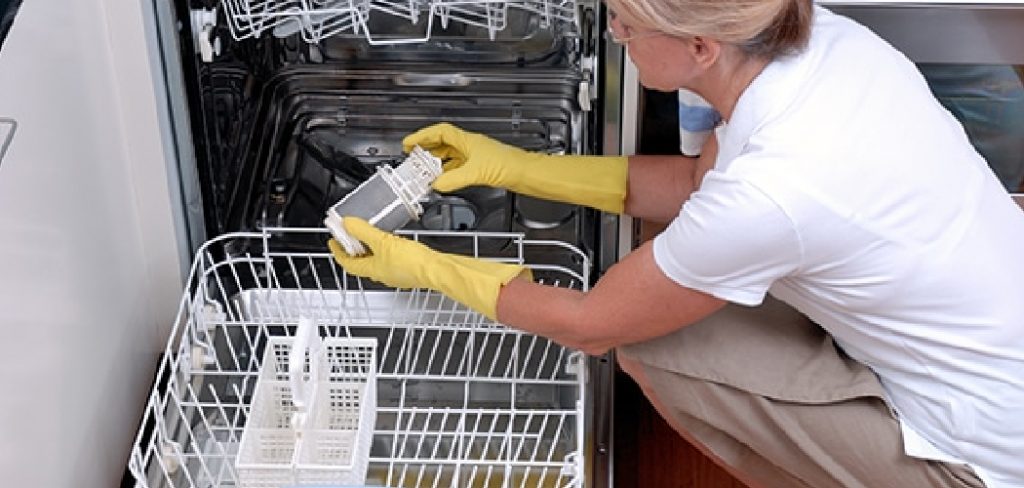
This guide on how to clean dishwasher bosch will walk you through the process of cleaning your Bosch dishwasher effectively. Keeping your appliance fresh is easy with a dishwasher cleaner DIY solution made from simple household ingredients like vinegar and baking soda.
Safety Precautions Before Cleaning
Before starting the cleaning process, it is crucial to take some safety precautions to avoid accidents and ensure effective cleaning. First, ensure the dishwasher is completely turned off and unplugged to prevent any electrical hazards. If unplugging is not possible, switch off the circuit breaker that powers the dishwasher.
Allow the dishwasher to cool down if it was recently in use, as certain components inside may be hot. Always wear protective gloves to protect your hands from sharp edges or cleaning solutions. Lastly, read the user manual for your specific Bosch dishwasher model to familiarize yourself with any additional safety guidelines or precautions.
Tools and Materials Needed
To properly clean and maintain your Bosch dishwasher, you will need the following tools and materials:
- Soft cloth or sponge
- Mild dish soap or dishwasher-safe cleaner
- White vinegar and baking soda (natural cleaning alternatives)
- An old toothbrush or a small cleaning brush
- Toothpick or pipe cleaner (for nozzles and jets)
- Bosch dishwasher cleaner (optional but recommended)
6 Simple Step-by-step Guides on How to Clean Dishwasher Bosch
Step 1: Prep Your Dishwasher
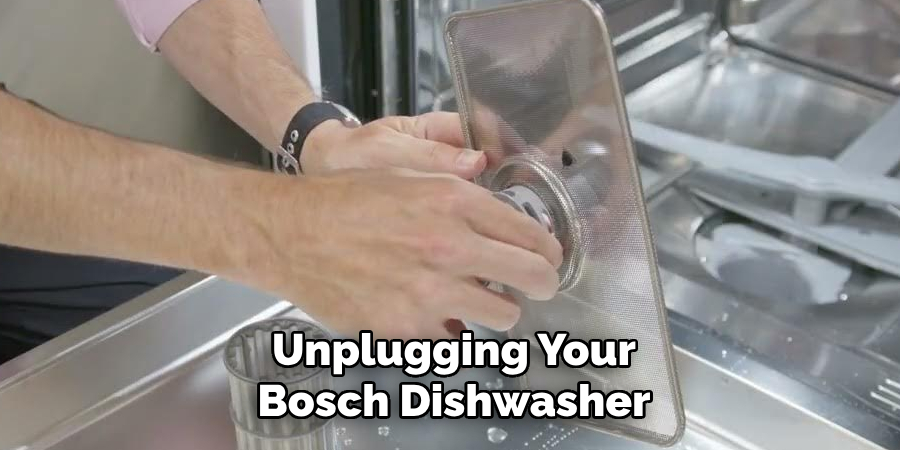
Begin by turning off and unplugging your Bosch dishwasher to ensure safety during the cleaning process. Remove all dishes, utensils, and racks to give yourself unobstructed access to the interior. Inspect the dishwasher for any large food particles, debris, or leftover residue and discard them.
This preparation ensures the cleaning process will be effective and prevents any blockages during operation.
Step 2: Clean the Filter
Locate the filter at the bottom of the dishwasher, usually beneath the lower spray arm. Carefully remove it by twisting it counterclockwise and lifting it out. Rinse the filter under warm, running water to remove any trapped food particles or debris. For stubborn residues, use a soft-bristle brush and mild soap to gently scrub the filter.
Once clean, ensure the filter is completely dry before reinserting it securely back into its position. A clean filter helps maintain optimal dishwasher performance and prevents unpleasant odors.
Step 3: Clear the Drain
The dishwasher’s drain is responsible for removing dirty water from the unit. Over time, food particles and other debris can accumulate in the drain, leading to clogs and poor drainage. To clear the drain, start by locating it at the bottom of the dishwasher.
Using a small tool such as a toothpick or paperclip, carefully remove any visible debris or buildup from the drain. Then, pour a mixture of half a cup of baking soda and one cup of vinegar into the drain to help dissolve any remaining residue. Let it sit for about 15 minutes before pouring hot water down the drain to flush out any loosened particles.
Step 4: Clean and Deodorize
To keep your dishwasher smelling fresh and clean, it’s important to regularly clean and deodorize it. Start by removing any food debris or residue from the bottom of the dishwasher with a damp cloth. Then, mix equal parts water and white vinegar in a spray bottle and use it to wipe down the interior of the dishwasher, including the door, walls, and racks.
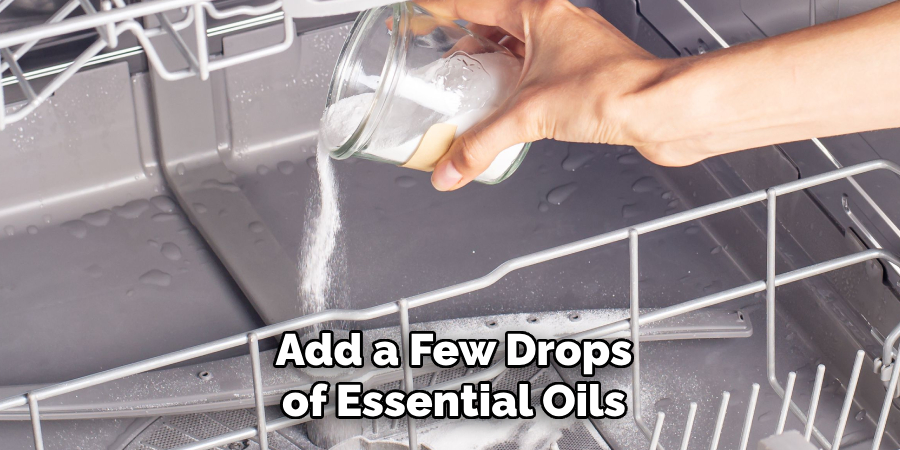
Next, sprinkle baking soda on the bottom of the dishwasher and let it sit for about 15 minutes before running a hot water cycle. This will help eliminate any lingering odors. You can also add a few drops of essential oils such as lemon or lavender, to the dishwashing detergent or rinse aid compartment to give your dishes a pleasant scent.
Step 5: Clean the Exterior
To clean the exterior of your dishwasher, use a microfiber cloth and a mixture of warm water and mild dish soap. Gently wipe down the door, handle, and control panel to remove fingerprints, smudges, or dirt.
For stainless steel finishes, you can use a stainless-steel cleaner or polish to restore shine and remove streaks. Be sure to wipe along the grain of the steel for the best results. Finally, use a dry cloth to buff the surface and leave it looking spotless.
Step 6: Maintain Regularly
To keep your dishwasher functioning at its best, it’s important to maintain it regularly. This includes cleaning the filter every few weeks, checking for and removing any clogs in the spray arms, and wiping down the door gasket to prevent mold growth. It’s also recommended to use a dishwasher cleaner once a month to remove mineral deposits and buildup that can affect the performance of your dishwasher.
Regular maintenance also includes being mindful of what you put in your dishwasher. Avoid placing items that are heavily soiled or have large food particles on them, as this can clog the spray arms and cause issues with drainage. It’s also important to use the appropriate amount of detergent for your specific dishwasher model, as using too much can lead to excess suds and poor cleaning results.
Following these steps on how to clean dishwasher bosch and taking regular maintenance measures can greatly prolong the lifespan of your dishwasher. Not only will it save you from costly repairs or replacements, but it also helps ensure that your dishwasher continues to run efficiently.
Troubleshooting Common Issues
Even with regular maintenance, your Bosch dishwasher might occasionally face issues. Here are some common problems and their potential solutions:
Dishwasher Not Draining Properly
If water is pooling at the bottom of the dishwasher, check to ensure the drain filter is not clogged. Clear any food particles and debris, then inspect the drain hose for blockages or kinks that might be obstructing the flow.
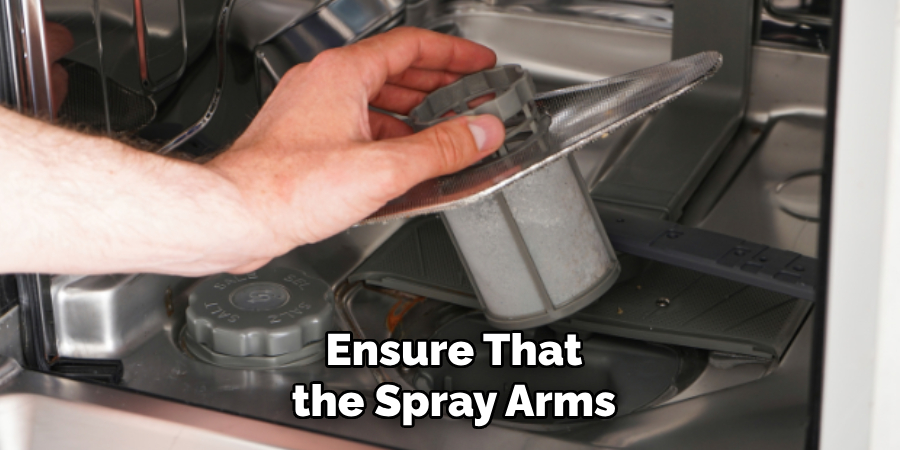
Dishes Not Getting Clean
If your dishes are coming out dirty, first ensure that the spray arms are not clogged or obstructed. Additionally, verify that you are using the correct dishwasher detergent and loading the dishwasher properly, allowing water to circulate freely.
Unusual Noises During Operation
A noisy dishwasher can be caused by loose items within the machine or improperly secured spray arms. Check for foreign objects like bones or utensils that might have fallen into the spray arm areas or the pump.
Dishwasher Not Starting
If the dishwasher does not turn on, confirm that the door is properly latched. Additionally, ensure that the appliance is plugged in and that the circuit breaker has not tripped.
Cloudy Glassware
Cloudiness on glassware is often caused by hard water deposits. Try using a rinse aid to improve the drying process and reduce mineral buildup. Regularly cleaning the dishwasher with a descaler can also help.
Addressing these common issues promptly can keep your dishwasher running smoothly and ensure maximum efficiency. If problems persist, consider consulting a Bosch service technician for professional assistance.
When to Call a Technician?
While many dishwasher issues can be resolved through simple troubleshooting and maintenance, there are times when professional help is necessary. If your dishwasher consistently fails to start, leaks water, or displays error codes that resetting cannot resolve, it’s best to contact a qualified Bosch service technician.
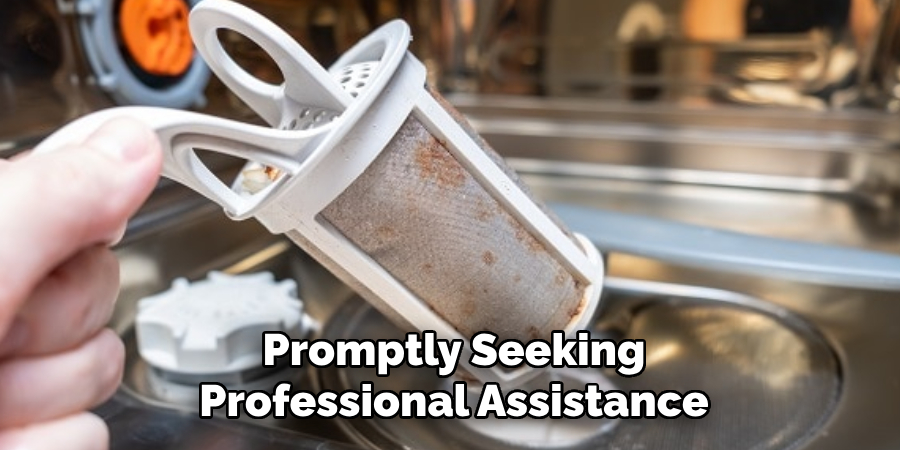
Additionally, unusual noises during operation, persistent drainage problems, or electrical issues such as flickering lights or blown fuses should be addressed by an expert. Promptly seeking professional assistance can prevent further damage and ensure your dishwasher continues to function optimally.
Frequently Asked Questions
Q: How Often Should I Clean My Bosch Dishwasher?
A: To maintain optimal performance, it is recommended to clean your Bosch dishwasher every 2-3 months or as needed. This includes removing any food debris from the filters and running a cleaning cycle with a specialized dishwasher cleaner.
Q: Can I Use Regular Dish Soap in My Bosch Dishwasher?
A: No, it is not recommended to use regular dish soap in a Bosch dishwasher. This can cause excessive sudsing and potentially damage the machine. It’s important to only use detergent specifically made for dishwashers.
Q: How Do I Troubleshoot Error Codes on My Bosch Dishwasher?
A: Error codes can indicate various issues with your dishwasher, such as a clogged drain or a malfunctioning sensor. Consult your user manual for specific error code meanings and troubleshooting steps. If the issue persists, it may be best to contact an authorized Bosch technician for assistance.
Q: Can I Save Energy by Using Shorter Wash Cycles on My Bosch Dishwasher?
A: Yes, using shorter wash cycles can save energy and water compared to longer cycles. However, keep in mind that heavily soiled dishes may not get fully cleaned with a shorter cycle. It’s important to find a balance between saving energy and ensuring your dishes are properly cleaned.
Conclusion
Bosch dishwashers are designed to deliver reliable, high-quality performance while offering energy-efficient options for your home. Proper use and maintenance of your dishwasher can prolong its lifespan and ensure optimal results.
By following the tips on how to clean dishwasher bosch provided and addressing any issues promptly, you can enjoy the convenience and efficiency of your Bosch dishwasher for years to come. If challenges arise, don’t hesitate to consult the user manual or seek assistance from an authorized Bosch technician.
About the Author
Adrian Green is a passionate woodworking enthusiast who has dedicated his life to the craft of woodworking. From his early days working alongside his father in the family woodworking shop, Adrian has honed his skills and developed a deep love for creating beautiful, functional pieces with his hands. As the voice behind The Woodenify Blog, he shares his knowledge, tips, and inspiration with fellow woodworkers of all skill levels, helping them build confidence in their abilities while learning new techniques.
Professional Focus
- Specializes in DIY woodworking projects, from furniture making to home décor.
- Provides step-by-step guides, tips, and practical tutorials for woodworkers at any skill level.
- Focused on empowering readers with confidence and knowledge through easy-to-follow instructions and hands-on techniques.
- Passionate about building a community where makers can share, learn, and grow together in the world of woodworking.
Education History
University of Craft and Design – Bachelor of Fine Arts (BFA) in Woodworking and Furniture Design
Woodworking Apprenticeships – Gained extensive hands-on experience through various workshops and mentorships with seasoned craftsmen, refining carpentry and furniture-making skills.
Expertise
- DIY woodworking, carpentry, furniture making, and home décor projects.
- Creating clear, accessible tutorials and guides for beginner to advanced woodworkers.
- Helping readers experience the satisfaction and fulfillment of turning raw materials into stunning finished products.
